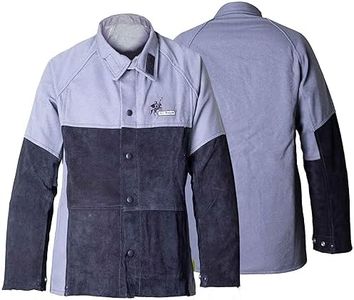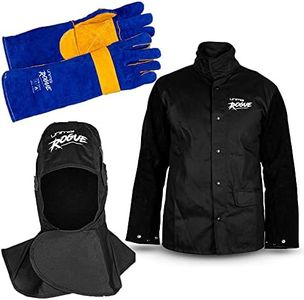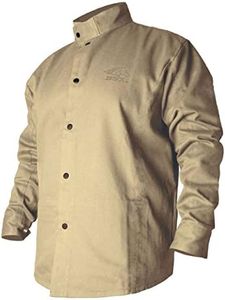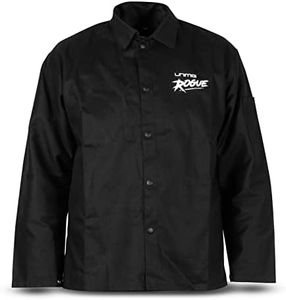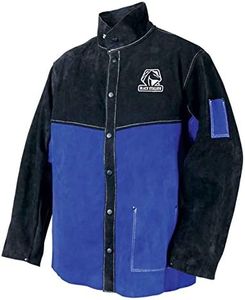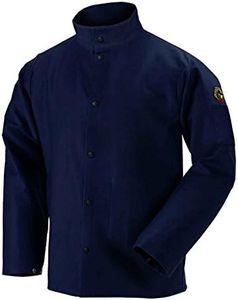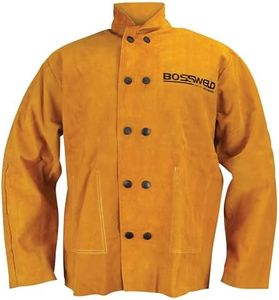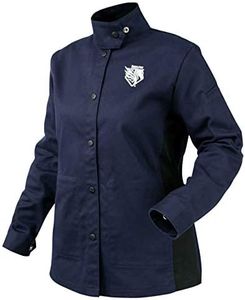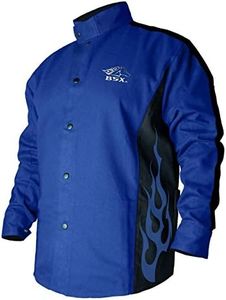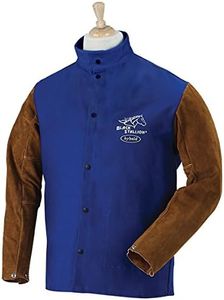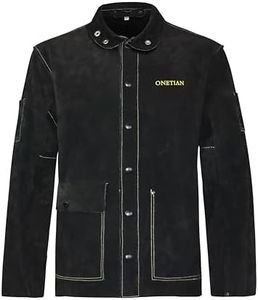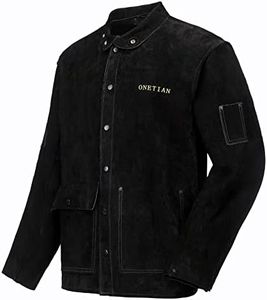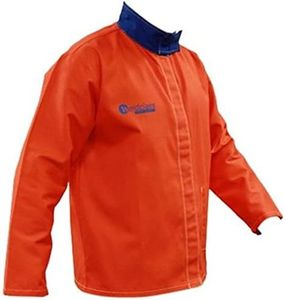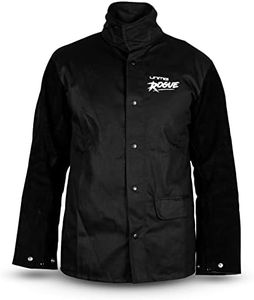We Use CookiesWe use cookies to enhance the security, performance,
functionality and for analytical and promotional activities. By continuing to browse this site you
are agreeing to our privacy policy
10 Best Welding Jackets
From leading brands and best sellers available on the web.By clicking on a link to a third party's website, log data is shared with that third party.
Buying Guide for the Best Welding Jackets
When choosing a welding jacket, your main concern is safety and comfort during welding tasks. A good welding jacket protects you from sparks, heat, and possible burns while allowing you to move freely. It's important to consider your working environment, the type of welding you do, and how often you'll use the jacket. The right combination of protection, comfort, breathability, and durability will ensure a safer and more enjoyable welding experience.MaterialThe material of a welding jacket is crucial because it determines the level of protection and comfort you get. Leather is a popular choice due to its excellent resistance to heat and sparks, but it can be heavy and not very breathable. Cotton jackets, on the other hand, are lighter and more comfortable for light-duty welding tasks, especially if they are treated to be flame-resistant. For those working in warmer environments or for extended periods, flame-resistant fabrics or hybrid jackets (leather sleeves and fabric body) might strike a good balance. Choose the material based on the amount and type of welding you do, as well as your need for mobility and comfort.
Heat and Flame ResistanceHeat and flame resistance tells you how well the jacket can protect you from high temperatures, sparks, and molten metal splatter. Some jackets offer basic protection for occasional welding, while others are designed for intense, high-risk jobs. If you'll perform heavy-duty welding or be exposed to more hazards, look for jackets certified for higher levels of resistance. For simpler tasks, moderate flame resistance might be enough. Always check for compliance with safety standards for your task needs.
Fit and CoverageHow a welding jacket fits affects both your safety and your ability to work comfortably. A snug fit keeps sparks from getting underneath, but the jacket should not be too tight, restricting movement. Coverage refers to how much of your torso, arms, and neck are protected. If your work involves overhead welding or frequent movement, consider a jacket with added length or features like adjustable cuffs and high collars for extra protection. Try on different sizes and styles to see what allows you to work most effectively while staying covered.
Weight and BreathabilityThe weight and breathability of your welding jacket can determine how comfortable you feel, especially over long periods. Heavier jackets provide more protection but can be tiring to wear, while lighter jackets are easier to move in and better in warm environments, but may offer less protection. Some jackets use vents or breathable materials to help with air circulation. When choosing, think about how much heat you’ll be exposed to and whether you need to move around a lot, balancing safety with comfort.
Closure Type and AdjustabilityClosure type refers to how the jacket stays closed—this could be with snaps, buttons, zippers, or Velcro. Secure closures prevent sparks from getting inside, but you’ll want something easy to fasten or unfasten, especially if you need to remove the jacket quickly. Adjustable features like cuffs, waistbands, and collars help you get a better fit and more complete protection. If you often need to change your jacket quickly or require a tighter fit in certain areas, pay attention to these details.
Durability and MaintenanceDurability refers to how long the jacket will last under tough working conditions, and maintenance is about how easy it is to clean and care for. Jackets made of thicker leather or quality flame-resistant fabrics typically last longer, especially in demanding environments. Some materials are machine-washable, while leather usually needs special cleaning. Think about how often you’ll use the jacket and how much upkeep you’re willing to do. For daily, heavy use, invest in a more durable jacket. For occasional light welding, something easy to clean might suit you better.
